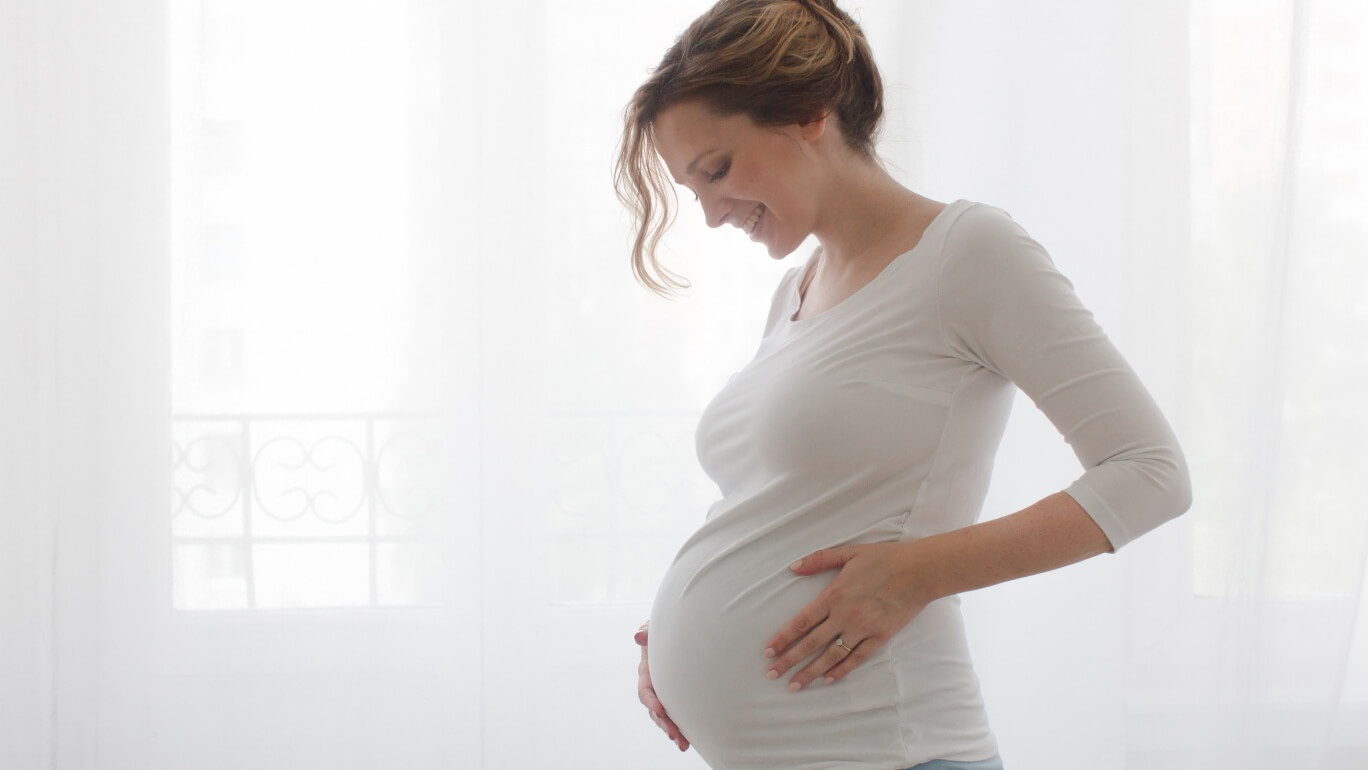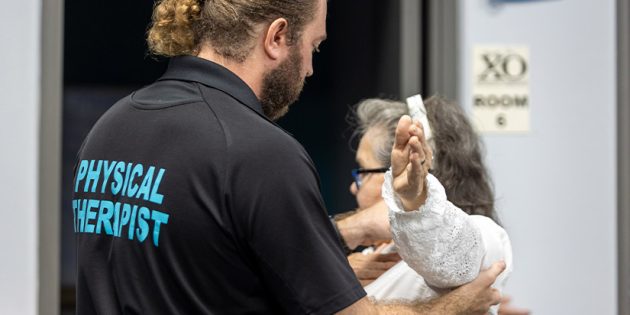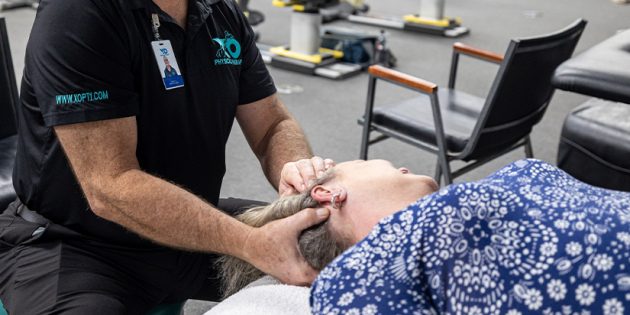What Is the Effectiveness of Pregnancy Fall Prevention Programs?

Pregnancy is an exciting time for many women, but the bodily changes that occur during this time can also make them more susceptible to falling.
With more than one-quarter of pregnant women experiencing a fall, pregnancy fall prevention anchored by physical therapy can be an important addition to a mother’s prenatal routine.
Evidence suggests that physical therapy that addresses a woman’s balance, stability, and core strength can reduce her risk of falls and safely navigate her changing body. Here is a look at this approach and its potential effectiveness for expectant mothers.
Pregnancy Fall Risks
Pregnant women experience a relatively high rate of falls, primarily because their bodies undergo significant changes that make it harder for them to maintain their balance. Some of the changes their bodies undergo that can increase their risk of falling include the following:
- Joint instability created by the release of the hormone relaxin
- Changing center of gravity caused by an expanding uterus
- Decreased abdominal muscle strength
- Lack of balance caused by shifting center of gravity and increased weight
These factors can make it harder for an expectant mother to maintain her balance, making it essential that she take steps to reduce her risk of falling while maintaining a healthy pregnancy.
Pregnancy Fall Prevention Programs
Formal fall prevention programs for expectant mothers are rare, but there are steps these women can take to minimize their fall risk. Some of the practical steps women can take at home include the following:
- Removing clutter and loose objects, such as throw rugs, that could lead to tripping.
- Wearing flat-soled shoes with a strong tread
- Following doctor’s orders when taking medications such as sedatives or antidepressants, which could lead to drowsiness
- Keeping the home well-lit.
- Using available stair railings and grab bars
The Role of Physical Therapy
One of the most effective steps a pregnant woman can take to reduce her fall risk is to undergo physical therapy. A therapist skilled in prenatal PT can establish an exercise routine that counteracts the high-risk factors that come with pregnancy. Here is a look at the key changes PT can make for an expecting mother.
Physical therapy fall prevention strengthens the core.
Physical therapy can help pregnant women to gently strengthen their core muscles, including the abdominal muscles that often weaken as they stretch during pregnancy. For example, pelvic tilts can improve the core’s stability without additional risk to the unborn child. Other exercises a skilled physical therapist may introduce for added core strength include the following:
- Swimming, a gentle, whole-body exercise
- Pilates, which teaches all of your muscles to work together
- Stretching to improve flexibility
- And more
With a stronger core, a pregnant woman can more easily carry the added weight of her growing uterus and baby, leading to fewer falls.
Physical therapy fall prevention improves balance.
As a pregnant woman’s uterus grows, her center of gravity shifts up and out. This new center of gravity can put the expectant mother off balance, making it harder for her to remain stable when walking, taking the stairs, or navigating clutter.
A physical therapist can implement balance exercises into a fall prevention program in order to help the pregnant woman get used to her new center of gravity and achieve a better sense of balance. Some of the steps the PT may take to achieve this goal include the following:
- Prenatal yoga and Pilates to improve both the core and balance
- Supported balance exercises
- Addressing pain in the hips, pelvis, and back caused by a lack of core strength and balance
- Testing balance to deliver tailored treatment plans
- And more
Physical therapy regimens that improve balance, particularly when tailored to the individual patient, can help expectant mothers safely avoid fall injuries.
Physical therapy fall prevention helps implement new movements.
Movement changes during pregnancy in response to the expectant mother’s bodily shifts. Sometimes, the way a woman moves can lead to pain, and sometimes, pregnancy can limit her movements, making sitting, walking, standing, and lying down more difficult. In order to prevent falls and improve a patient’s comfort level, a physical therapist can often teach a pregnant woman new and better ways of moving.
Often, exercises that improve core strength and balance can also improve a pregnant woman’s movement. Greater strength and flexibility make safe movement easier.
In addition, an attentive physical therapist will listen to their patient’s needs and tailor their movement exercises to their needs. For example, if you need to go up and down the stairs frequently, a PT may be able to help you develop safe habits for doing so. If lying down is difficult, a PT can help you discover new ways of getting in and out of bed.
Physical therapy can serve as an effective and central part of a pregnancy fall prevention program. Here at XO Physical Therapy, with locations in McAllen, Mission and Weslaco, TX we have years of experience in helping patients, including expectant mothers, to address their unique needs with tailored treatment programs. Our state-of-the-art techniques can help you improve your core strength and balance, move safely, and enjoy a safe and fall-free pregnancy. Call us today to learn more!




